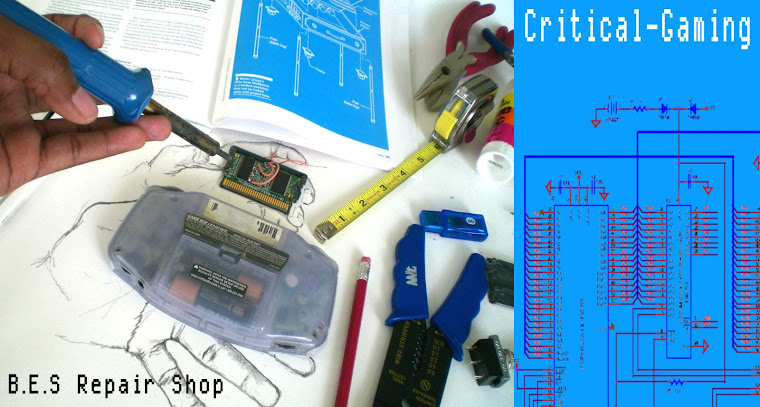Over the past five years or so, I've noticed a certain design trend in games particularly sequels. Many developers looked at established franchises and decided to double a core element of the game the sequel. In these cases, the gameplay doesn't necessarily allow for two player co-op play. Strange as that may be, let's look at a small list of games that have gone the way of the double.
- Mario Kart Double Dash
- Resident Evil 0
- Pikmin 2
- Castlevania Portrait of Ruin
- Trauma Center: Second Opinion
- Advance Wars: Dual Strike
- Tekken Tag Tournament
- Dead or Alive
- Lunar Knights
- Moero! Nekketsu Rhythm Damashii Osu! Tatakae Ouendan 2 (Japan only)
- Halo 2 (duel wielding)
- Halo3 features a four player campaign mode, four player map editor, four player video watching, and up to four players on one console. Undoubtedly other FPSs will follow Halo's lead and incorporate similar features.
- The Legend of Zelda Four Swords: Just when you thought this series only supported one player, now you have four. I'm sure The Legend of Zelda: Two Swords was out of the question.
- Final Fantasy Crystal Chronicles: Just like Four Swords, this game lets four players gather together to do everything from thwarting evil, writing letters to mom, to eating fruit.
Gimmick:
| 1. | an ingenious or novel device, scheme, or stratagem, esp. one designed to attract attention or increase appeal. |
| 2. | a concealed, usually devious aspect or feature of something, as a plan or deal: An offer that good must have a gimmick in it somewhere. |
| 3. | a hidden mechanical device by which a magician works a trick or a gambler controls a game of chance. |
A developer working on a series or a franchise is expected to improve upon it. If the controls weren't good before, we expect them to improve the next time. As this process continues, sequels generally get more and more refined. But gamers crave and cry for something new. Though we respect and expect refinement, we demand fresh content and ideas.
For this reason, I believe all games need a gimmick. In other words, whether making another game in a series, or a new game in an established genre, if the designers start from the beginning with a strange, clever, or new idea in mind, they have a better chance of creating a more refined and unique game. If you've read my Zelda Phantom Hourglass Essays, you know that the gimmick of drawing on maps using the touch screen was fully incorporated into the core gameplay creating a rich experience that's shown best in the repeated visits to the Temple of the Ocean King.
With so many similar games being released these days, when you go to pick up another one, ask yourself this: "What's new about this game? What makes this game's gameplay unique and good? What's the gimmick of its gameplay?" And if it doesn't have one then.... "What's the point?"


2 comments:
Speaking of gimmicks, I would like to see more games that do 1 thing really, really well. And fewer games that try to include every single thing the developers can think of. There are far too many games that try to be big and open, letting the player do anything, that ultimately everything is just sort of average. A tighter focus on 1 gimmick, I think, would be very enjoyable.
Korey:
Good point. It seems that developers easily get off track. One gimmick is certainly enough to keep even a master developer like Miyamoto busy. If only more developers realize that games are fairly specific and simple. They're not toolboxes. They're not tons of options. They're basically rules, limits, and goals.
It's sad when a game like BioShock does so many things well in parts, but fails to put them together while harnessing a gimmick.
Post a Comment